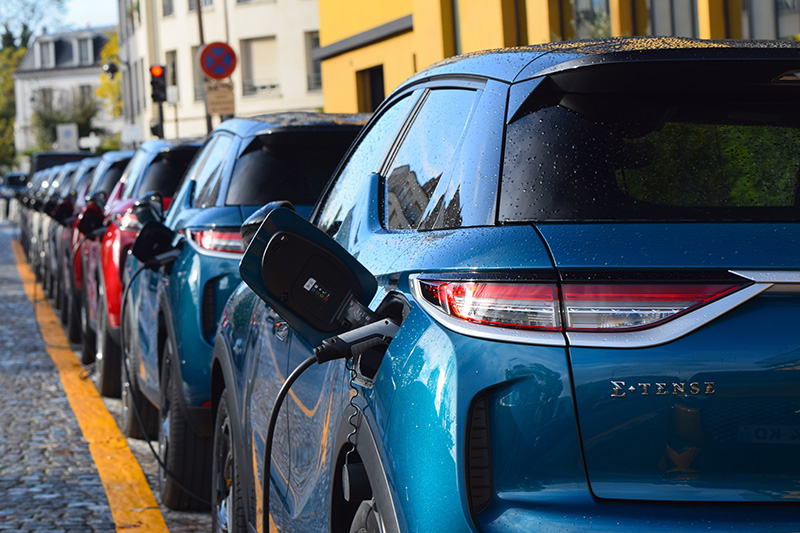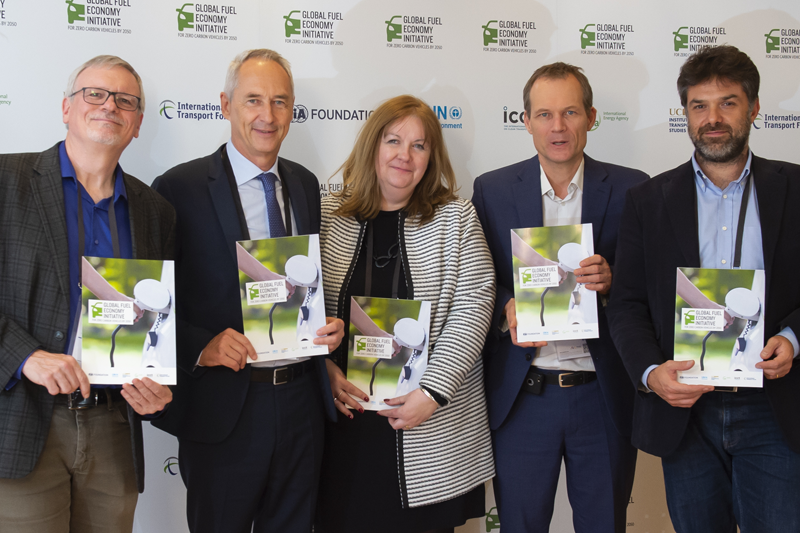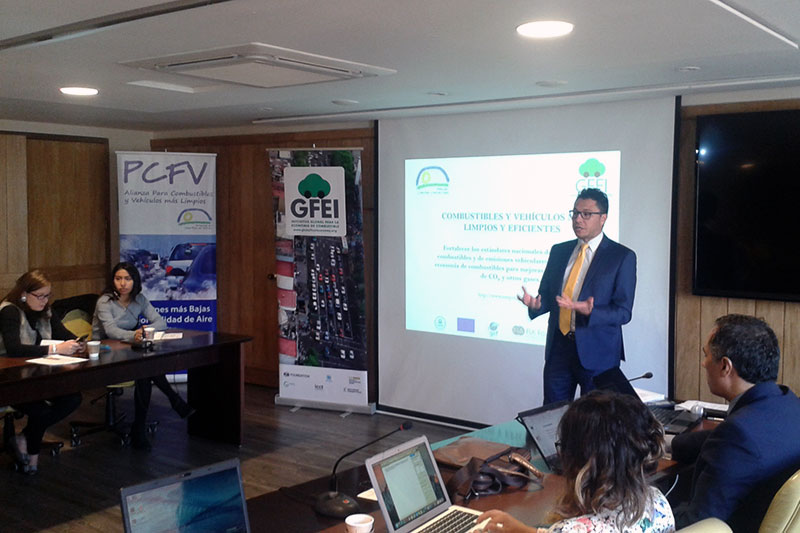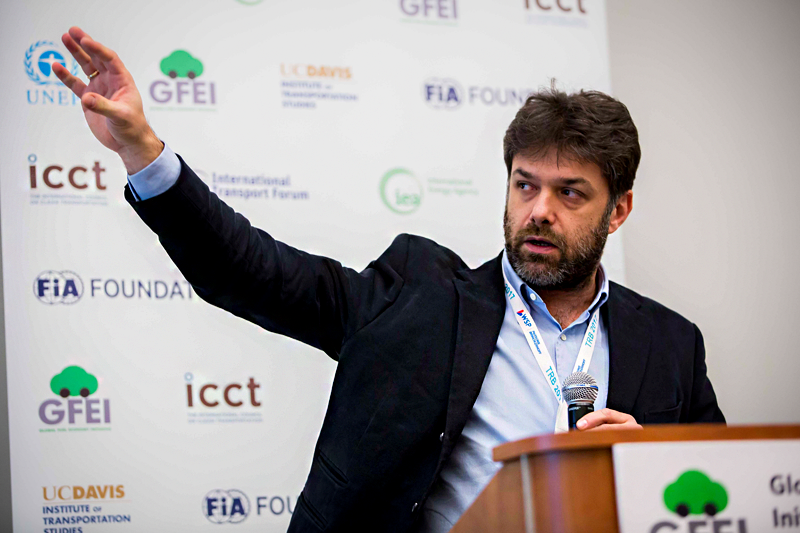Global Goals High Level ‘Partnership Exchange’ features GFEI
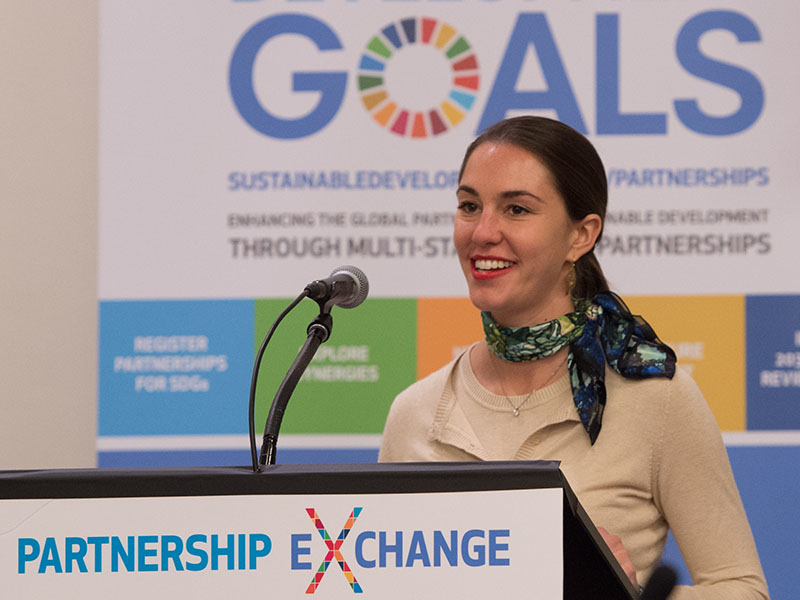
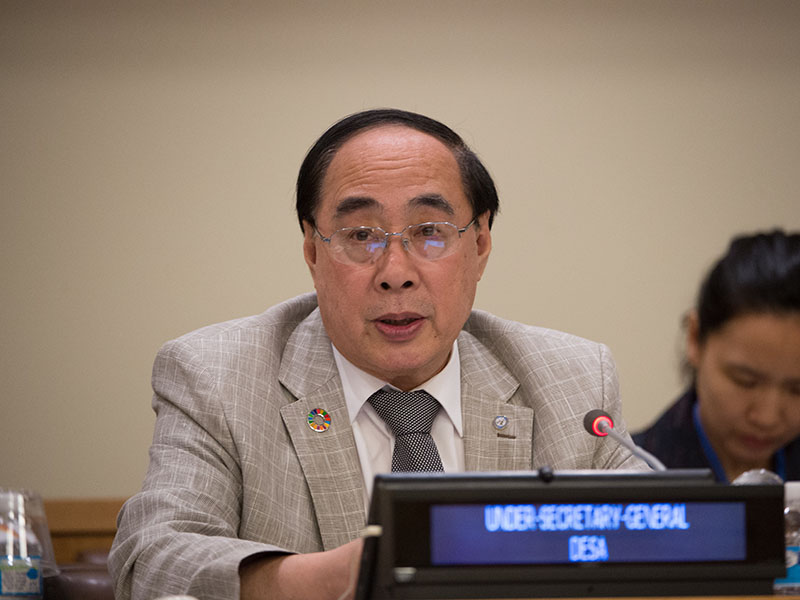
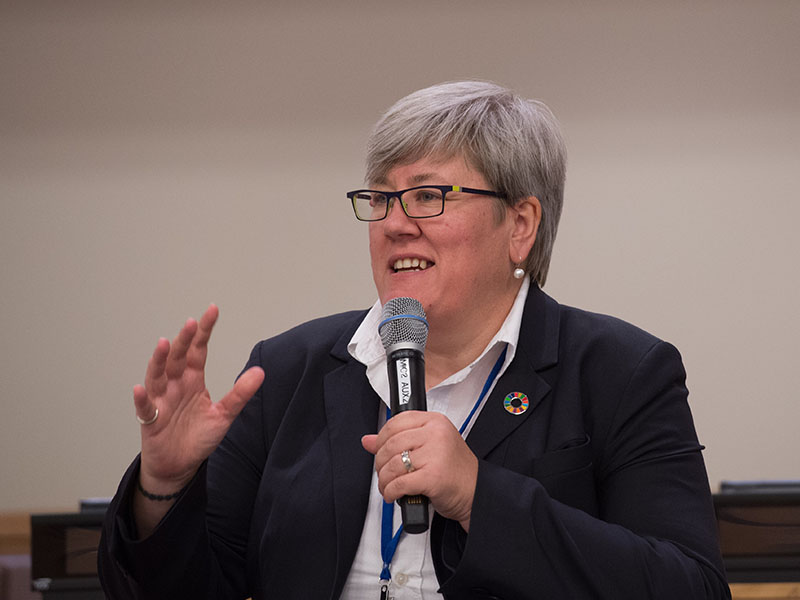
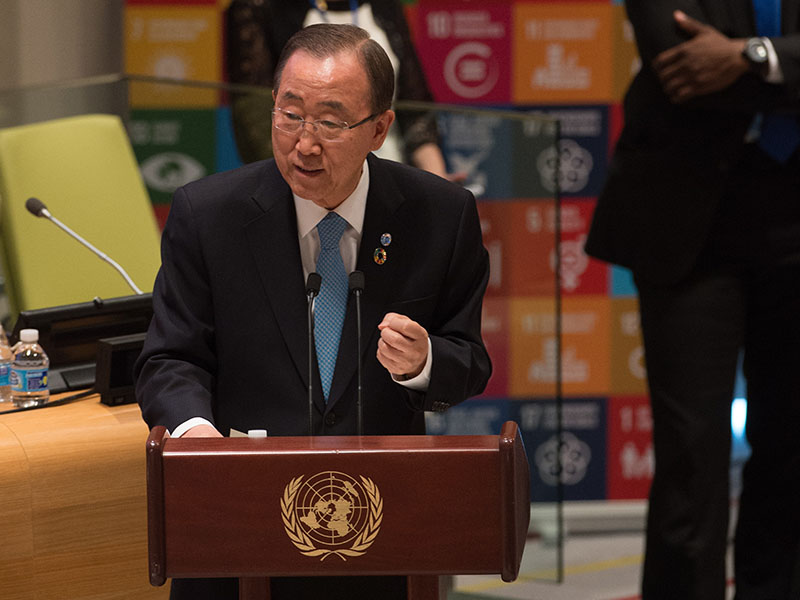
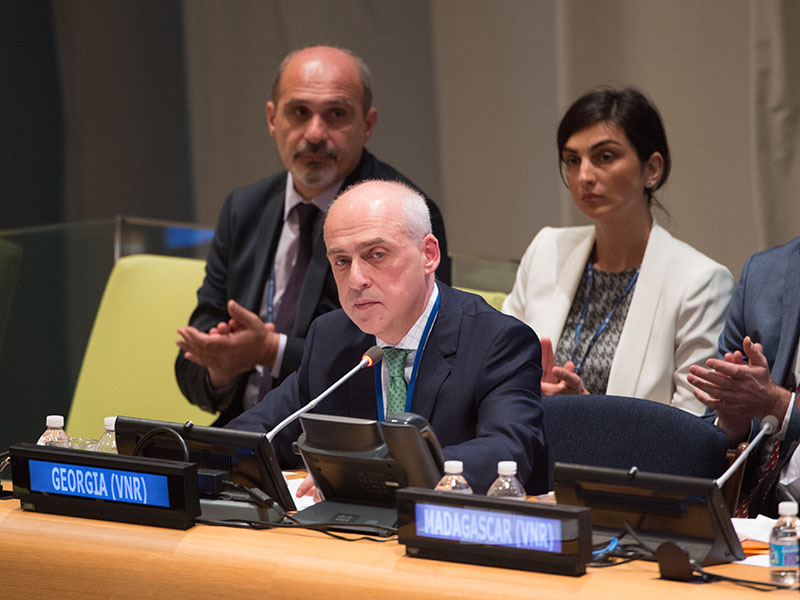
The Global Fuel Economy Initiative’s “dynamic partnership” was included in the High Level Political Forum for the Sustainable Development Goals in New York.
At the United Nations Headquarters in New York on 18th July 2016, Natalie Draisin, the FIA Foundation’s US Manager (main picture above), presented information about the Global Initiative for Child Health and Mobility and the Global Fuel Economy Initiative (GFEI) to delegates at a high-profile ‘Partnership Exchange’ event at the High Level Political Forum (HLPF) on Sustainable Development.
The Forum was a platform to share knowledge and expertise to support the achievement of the Sustainable Development Goals. Of the 2,119 registered partnership exchange initiatives, 26 were chosen to present at the forum.
The theme reflected the HLPF, to ‘Support the SDGs through multi-stakeholder partnerships – ensuring that no one is left behind.’ Wu Hongbo, Under-Secretary-General for Economic and Social Affairs, UN-DESA, opened the event. “The adoption of the 2030 agenda has elevated partnerships to new heights,” he said. “By adopting this agenda and COP 21, leaders sent a message – to succeed, we must mobilize all partners working together in a broader, deeper partnership,” David Nabarro, Special Adviser on 2030 Agenda for Sustainable Development and Climate Change, added.
Both initiatives provide tangible examples of two strategic partnerships which strive to help achieve the SDGs. During the ‘Partnerships with a focus on people’ session, Natalie Draisin presented the Child Health Initiative. The Initiative convenes child advocacy organisations, development research organisations, and experts in city management and street design, to implement practical interventions to improve legislation, increase funding, and develop evidence-based case-studies. “We can all agree that children have a right to a safe and healthy route to school. But in reality, every day more than 3000 young people suffer a road traffic death or serious injury. Millions more face danger on the roads, and breathe dirty air – often on their way to school. Every one of these instances is preventable. We have cost-effective solutions, and we can deliver them with the right partners, funding, and political will,” she said.
The Global Fuel Economy Initiative (GFEI) was one of eight partnerships featured in the session on ‘Planet & Prosperity.’ Rachel Kyte, CEO of Sustainable Energy for All (SE4All), and moderator of the session, described GFEI as an “extremely dynamic partnership,” and highlighted the key importance of addressing transport as a major ‘end-use’ energy sector. “It’s about supporting countries in the transition to a low carbon future. It’s about a revolution to make energy efficiency something that heads of state compete with each other on,” she said.
The presentation highlighted the way that GFEI partners collaborate to provide a range of awareness raising, research and in-country support to achieve the benefits of fuel economy – including saving 33gt of CO2 – equivalent to 300 fewer power stations. Draisin discussed the range of partners included in the initiative - including civil society, the private sector, and global governments and policymakers. Through delivery via a broad partnership, GFEI offers practical support to countries, backed by rigorous analysis and evaluation, and the deployment of resources.
The High Level Political Forum is a process at the UN bringing together governments to report on their progress towards achieving the Sustainable Development Goals. The Ministerial-level forum was formally opened by UN Secretary General Ban Ki-Moon. Among the 22 countries reporting in 2016 is Georgia, which co-sponsored a briefing for UN missions with the Global Initiative for Child Health and Mobility.
Mr. Hongbo remarked that “We have collectively embarked on a historic journey, with people at the center, and no one left behind.” Recognized as two initiatives which enhance global partnership for sustainable development, the Child Health Initiative and GFEI strive to keep people at the center of the SDGs, by providing safe and sustainable transport for all.
